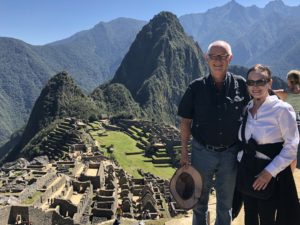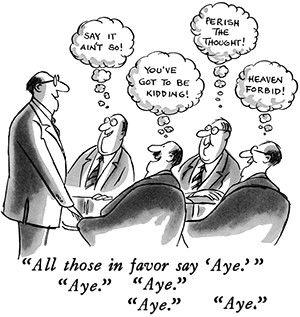
Benjamin (my five-year-old grandson), and I were arm-wrestling on the bed. Benjamin took a short break, crawled to the corner of the bed, and whispered a prayer, “God, give me strength to beat Papa.” When he returned to the tournament, I bowed my head and prayed, “God, give me strength to beat Benjamin.” He went back to his prayer corner and prayed, “God, don’t listen to Papa’s prayer.”
Benjamin always wins our arm-wrestling contests (as well as thumb-wars), so hopefully his faith in God and the efficacy of prayer was affirmed. But the incident did disclose an interesting conundrum. How does God negotiate conflicting prayer requests? For instance, organizers of a Fourth of July parade pray for good weather while local farmers are praying for rain to end the drought.
Abraham Lincoln spoke of this mystery in his second presidential inaugural speech—and also proffered an answer.
On March 6, 1865 (about five weeks before the Civil War ended), Lincoln addressed a divided nation. In his speech he said, “Both (North and South) read the same Bible, and pray to the same God; and each invokes His aid against the other. The prayers of both could not be answered; that of neither has been answered fully. The Almighty has His own purposes.”
There’s a higher principle at work, and Lincoln expressed it well—the Almighty has his own purposes.
This should not discourage us from praying—after all, the Bible teaches “by prayer and petition, make your requests to God”; but we’re wise to frame our requests knowing that “our God is in heaven, he does what he pleases.”
We wouldn’t want it any other way.
When praying, I avoid prejudicial requests. I don’t pray that UT Austin will beat Oklahoma in their annual football game, though I may pray for the safety of the players. I don’t pray about the weather; it is totally controlled by God. I avoid giving God advice, or telling him what he should do. And, I don’t pray for his aid if it might harm someone else.
Also, my prayers are shorter than they used to be. Ecclesiastes teaches, “Don’t be hasty in bringing matters before God. After all, God is in heaven, and you are here on earth. So let your words be few.” Sometimes, long public prayers seem unnecessary. (Relative to long public prayers, someone once said, “If your prayer is short, I will pray with you. If it is long, I will pray for you. If it is extremely long, I will pray against you.”)
Our best option is to embrace the sovereignty of God and keep our prayers simple. I often pray, “God, be God in my life and in the lives of those I love.”

























 I recently had a tiff with my adult daughter. I had asked her opinion about a particular statement and when she responded, I pushed back on her thinking. She replied, “Dad, why do you ask my opinion and then argue with it?”
I recently had a tiff with my adult daughter. I had asked her opinion about a particular statement and when she responded, I pushed back on her thinking. She replied, “Dad, why do you ask my opinion and then argue with it?”
